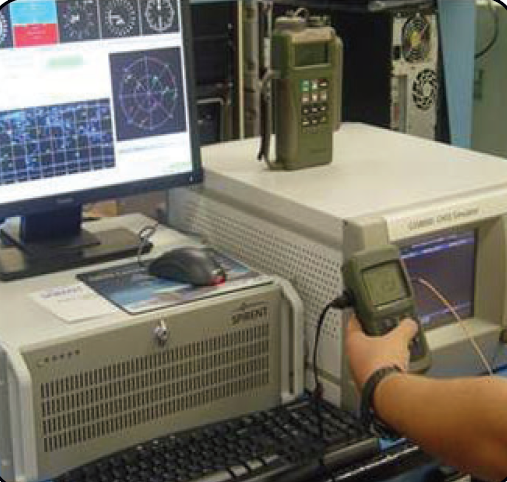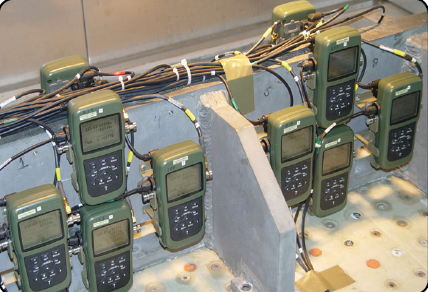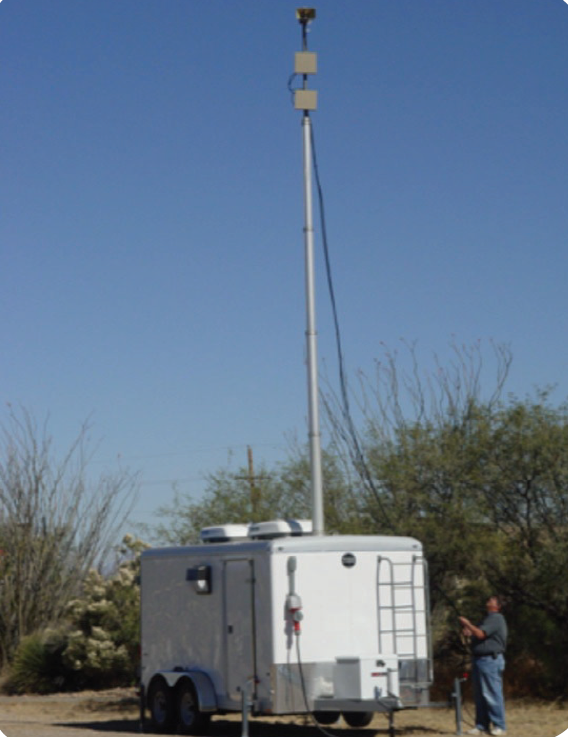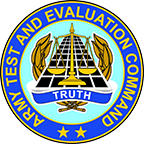- Homepage >
- Facilities >
- GPS Test Facility

GPS Test Facility
Overview
The Global Positioning System (GPS) Test Facility performs a variety of specialized GPS tests using EPG’s outdoor test ranges and the GPS Instrumentation Suite (GPSIS), along with specialized data collection, reduction and analysis tools. The GPSIS consists of three GPS simulators that provide full control of the signal structure to replicate the live GPS constellation, allowing repeatable laboratory testing under controlled conditions.
Fort Huachuca’s 1.6 million acre Buffalo Soldier Electronic Testing Range allows personnel to conduct testing in a variety of real-world environments including desert, canyon and mountainous terrain with or without foliage. A differential GPS base station and rover system can provide differential GPS corrections for the entire test range and beyond. The corrections provide position accuracies in the sub-meter range, as well as producing truth data during testing. With over 25 years of GPS test experience, EPG is well known and respected in the test community.

Test Program Support
The Global Positioning System (GPS) Test Facility provides a wide range of GPS test support to the GPS directorate, military GPS product directors (PD), program managers (PM) and commercial GPS receiver manufacturers. Some of the recent test programs supported by the facility include, but are not limited to:
- Assured Position Navigation & Timing Systems (APNT)
- M-code Military GPS User Equipment (MGUE)
- Enhanced Defense Advanced GPS Receiver Distributed Device, M-code (ED3M)
- Patriot Missile Launcher (AJ Antenna testing)
- Combat Survivor-Evader Locator (CSEL)
- COSPAS-SARSAT (Search and Rescue beacons)

Capabilities
The GPSIS provides flexibility in testing receivers by providing operational control of dynamic and repeatable scenarios in a low-cost laboratory environment. The GPSIS is capable of simulating external sensor and input data, thereby emulating host vehicle integration. Sensor data is presented on interfaces coincident with GPS RF signals. This allows testers to ‘drive’ or ‘fly’ the GPS receiver in the convenience and comfort of the laboratory, thereby reducing costly dynamic testing. Simulations are replayed exactly and as many times necessary with controlled variability to exercise intricacies in receiver design, or to exploit receiver anomalies and performance issues. Integrated control for Electronic Warfare and multipath signals are modeled rough computer control. The simulated GPS signals are injected directly into a GPS receiver under test in the laboratory.

GPS Support
-
GPS Field Testing
- GPS receiver performance testing in tactical, live environment
- Characterize impact of actual interference while operationally configured
- Compare different GPS receivers in live environments
-
Field Testing and Support Equipment Portable Data
Collection systems
- PDA handheld-based data collection systems
- Allows monitoring of GPS receiver while testing
- Collects performance data at 1-Hertz rate
-
Portable Jammer Systems (if needed)
- Provides interference signals (known threat or custom)
- Adjustable power levels
- Precise control
Other Testing Supported
The GPS Test Facility works together with all the other EPG Test Facilities to create a seamless, one-stop-shop test environment for the customer. Complete Environmental Qualification testing (MIL-STD-810G) and EMI/EMC testing (MIL-STD-461G) is typically conducted concurrently with laboratory and field testing.
Future Capabilities
The GPS test facility has developed comprehensive test support capabilities and infrastructure to support testing of emerging APNT & MGUE systems. This helps ensure our readiness to support future development and GPS enhancement initiatives.


